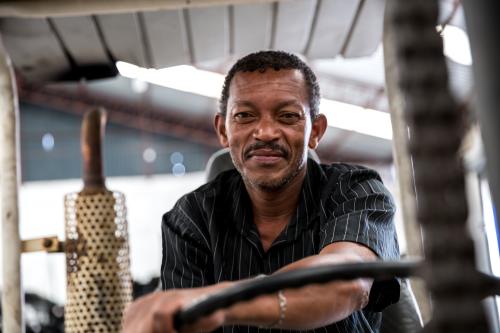All roads lead to the brain. Depression and anxiety, loneliness, Alzheimer’s disease, learning disorders, substance misuse disorder, long-haul COVID (i.e., “brain fog”), the toxic effects of air pollution on the brain, and even deaths of despair are all brain-based challenges. These issues typically fall through the proverbial cracks given they cut across policy areas and sectors of government. We need a coordinated approach to manage and ultimately prevent these issues: Such an approach will boost economic dynamism through reduced suffering, optimized brain performance and productivity, and new industries.
Brain-based challenges all involve brain health and wellness at an individual and societal level. They all represent internal or external disruptions whether biological, economic, structural, environmental, or social. Collectively, they were reducing life expectancy in the United States, long before the SARS-COV-2 pandemic. The pandemic, in turn, has made all of these brain-based issues profoundly worse.
Brain function and the myriad of conditions that influence it are rarely considered in current economic or public policy approaches. This may in part be due to scientific advancements in the brain sciences outpacing economic and policy change. It is also a result of the siloed and growing knowledge of the brain and economics rarely converging to inform the development and implementation of policy.
Our collective failure to connect neuroscience and social policy may be most conspicuous in matters of social justice. Increasing homelessness, mass incarceration, and deaths of despair are all driven, in part, by untreated brain disorders. With the rising threat of automation, workers who are not “brain ready” for the knowledge economy will face job losses, loss of purpose, despair, and fall further behind. Further, over a dozen institutions within the National Institutes of Health (NIH) engage in brain research, which results in imperfect coordination, artificial siloes, resource waste, and redundancy. This is particularly troubling given many of the fundamental brain disease mechanics are shared across many disorders, and dysfunction in mood and cognition is common among brain challenges across the lifespan.
A new approach to improve economies and societies is long overdue. To this end, we have developed a novel asset, Brain Capital, which we believe can inform better policy development. Brain Capital incorporates brain health and brain skills and drives economic empowerment, social resilience, and emotional connection. As brains are indispensable drivers of human progress, Brain Capital provides an opportunity to invest in these valuable assets and nurture healthier, more resilient, and flexible brains. And yet, remarkably, Brain Capital is not captured by any existing measure of gross domestic product (GDP).
Download the full policy brief








